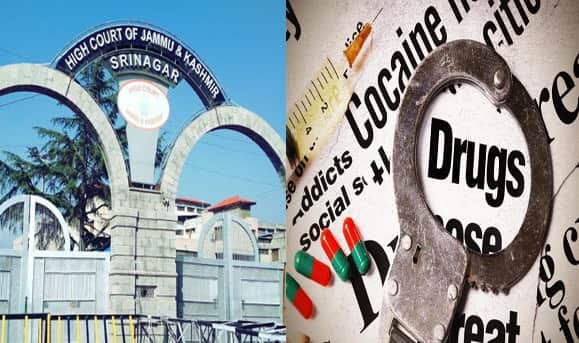
The Jammu & Kashmir and Ladakh High Court recently observed that the involvement of various terrorist organizations and syndicates in drug trafficking puts states’ national security and sovereignty at risk from narco-terrorism.
A single-judge Justice Vinod Chatterji Koul was hearing a plea of Mohammad Ashraf Dar seeking to quash preventive detention order passed by Divisional Commissioner, Kashmir in terms of Section 3 of PIT-NDPS Act.
Ashraf Dar is detained under the Prevention of Illicit Traffic in Narcotic Drugs and Psychotropic Substances (PITNDPS) Act, 1988.
While dismissing his plea, the bench emphasized that because of India’s “close proximity” to the main opium-growing regions of the area, drug trafficking poses a serious threat to the nation. As a result, drug abuse, particularly among young people, is a concern for us.
The single bench noted that “Our global society is facing serious consequences of drug abuse and it undermines the socio-economic and political stability and sustainable development,” highlighting the threat that the drug problem poses to public health, safety, and the well-being of humanity.
Justice Koul further noted that it also distorts the health and fabric of society and it is considered to be the originator for petty offences as well as heinous crimes, such as the smuggling of weapons and ammunition and money laundering.
Pointing out to the surge of this menace in recent years, the court recorded, India has been facing a problem of transit traffic in illicit drugs and the spill over from such traffic has caused tribulations of abuse and addiction which in turn has created an illicit demand for drugs within the country.
The activities of those involved in such illicit traffic have a negative impact on the national economy, according to Justice Koul, who also noted that the illicit traffic in narcotic drugs and psychotropic substances poses a serious threat to the health and welfare of the people.




